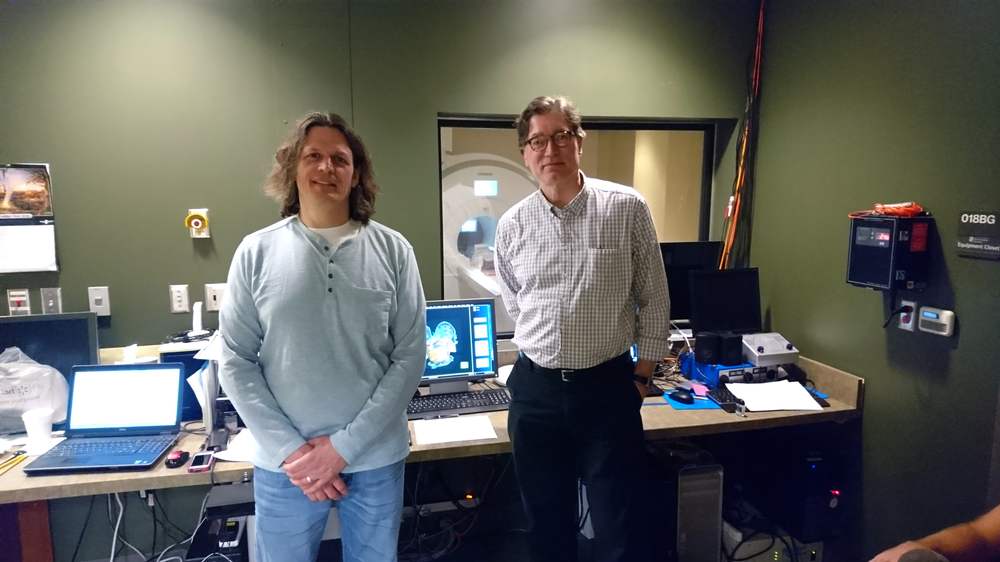News
The Koeze Business Ethics Initiative at Seidman Partnered with Texas Tech Neuroimaging Institute for Empathy Study
October 01, 2018

The Koeze Business Ethics Initiative (KBEI), housed at Seidman, partnered with the Neuroimaging Institute at Texas Tech University in September of 2018, to better understand whether or not certain role-playing techniques used in the classroom could help students and business managers discover – or recover – cognitive empathy, or what is otherwise known as taking the perspective of others and demonstrating an understanding of their thoughts and motivations. Studies at the University of Michigan and elsewhere have noted significant declines in cognitive empathy among younger populations, while business leaders have been saying they see successful employees as those who have, among other skills, a greater capacity for empathy. Director of the KBEI Michael DeWilde has been using role plays in his classes for years and when Dr. Eric Walden, the director of the TTNI, saw a piece about his work he reached out to the KBEI, asking if DeWilde and his research assistant, Nguyen Pham, wanted to test their approach in a lab. DeWilde, Walden and Pham spent a week in September in the lab, putting 23 subjects through various scenarios, coaching them, and then scanning them in the Institute’s MRI machine. Previous research suggests that there are regions of the brain particularly associated with cognitive empathy and if it can be shown that these role-playing techniques have a correlated effect on those regions, it will be preliminary scientific evidence for expanding the study, as well as the techniques. The TTNI has so far sponsored the research (about an $18,000 investment), though the KBEI is in the middle of applying for grants based on these pilot studies.
The technique of role-playing takes real-life situations, mostly drawn from businesses, that Director Michael DeWilde has either been directly involved in, consulted on, or his MBA students have brought forward. They range from the fairly straightforward (letting someone know you are sorry about something) to quite complex (competing loyalties, such as dealing with a racist customer who provides a significant percentage of your sales) but always involves the role-playing agent and another character in the scenario. Professor DeWilde walks through the scenario at length, with a chance for the person in the agent’s chair to try out various responses. Along the way, he helps them cope with the stress and anxiety of having to respond to difficult situations, as well as talking through what the “best” responses and resolutions might be, and why. Role-playing often deals with the agent’s reluctance to empathize, if that is present (it often is), what empathetic responses look and sound like, and how you might begin to cultivate those. The technique ultimately asks people to keep in mind the sorts of questions they think are appropriate to ask in the moment, what it would be helpful or useful to hear if they were in the other scenario subject’s shoes, and then reflect on what would be useful and helpful for they themselves to hear were the roles reversed. It is the KBEI’s hypothesis that the conscious repetition of practiced role-playing, of taking the perspective of others, should have an effect on our capacity for cognitive empathy—ideally in the positive direction. Whether the KBEI’s work with the TTNI will provide neurological evidence of the hypothesis remains to be seen.

